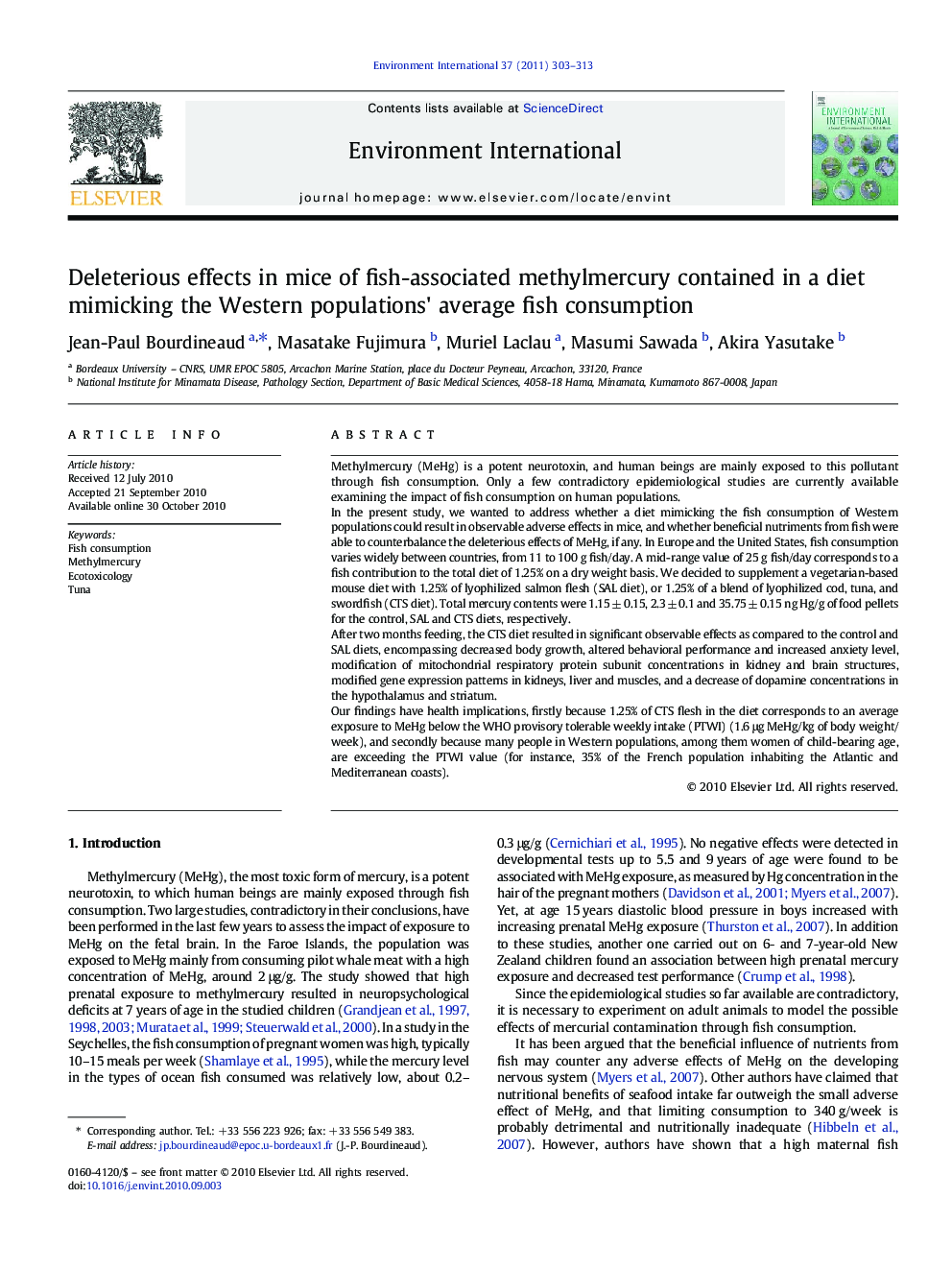| کد مقاله | کد نشریه | سال انتشار | مقاله انگلیسی | نسخه تمام متن |
|---|---|---|---|---|
| 4423221 | 1308816 | 2011 | 11 صفحه PDF | دانلود رایگان |

Methylmercury (MeHg) is a potent neurotoxin, and human beings are mainly exposed to this pollutant through fish consumption. Only a few contradictory epidemiological studies are currently available examining the impact of fish consumption on human populations.In the present study, we wanted to address whether a diet mimicking the fish consumption of Western populations could result in observable adverse effects in mice, and whether beneficial nutriments from fish were able to counterbalance the deleterious effects of MeHg, if any. In Europe and the United States, fish consumption varies widely between countries, from 11 to 100 g fish/day. A mid-range value of 25 g fish/day corresponds to a fish contribution to the total diet of 1.25% on a dry weight basis. We decided to supplement a vegetarian-based mouse diet with 1.25% of lyophilized salmon flesh (SAL diet), or 1.25% of a blend of lyophilized cod, tuna, and swordfish (CTS diet). Total mercury contents were 1.15 ± 0.15, 2.3 ± 0.1 and 35.75 ± 0.15 ng Hg/g of food pellets for the control, SAL and CTS diets, respectively.After two months feeding, the CTS diet resulted in significant observable effects as compared to the control and SAL diets, encompassing decreased body growth, altered behavioral performance and increased anxiety level, modification of mitochondrial respiratory protein subunit concentrations in kidney and brain structures, modified gene expression patterns in kidneys, liver and muscles, and a decrease of dopamine concentrations in the hypothalamus and striatum.Our findings have health implications, firstly because 1.25% of CTS flesh in the diet corresponds to an average exposure to MeHg below the WHO provisory tolerable weekly intake (PTWI) (1.6 μg MeHg/kg of body weight/week), and secondly because many people in Western populations, among them women of child-bearing age, are exceeding the PTWI value (for instance, 35% of the French population inhabiting the Atlantic and Mediterranean coasts).
Research Highlights
► Tuna consumption alters mice behavioral performance.
► Tuna consumption increases mice anxiety level.
► Tuna consumption modifies mitochondrial protein concentrations in brain structures.
► Tuna consumption modifies gene expression patterns in kidneys, liver and muscles.
► Tuna consumption decreases dopamine concentrations in mice hypothalamus and striatum.
Journal: Environment International - Volume 37, Issue 2, February 2011, Pages 303–313